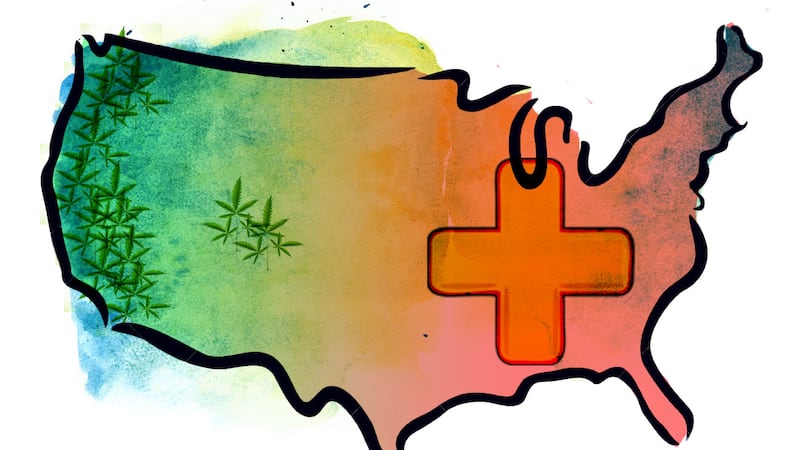By Zon Mundhenk
It's 4 am on a Tuesday in Dayton, Ohio, in my tiny place in the shadow of massive Wright-Patterson Air Force Base. I'm awake because my feet feel like they are on fire, and I think someone has misplaced a knife set in my back and shoulders. I have the shakes and I'm about to cry; I've already taken nine Naproxen caplets.
"Toothless," one of my cats, sits on the back of my chair and tries to comfort me. I go to the only place I can for human support at this hour—the internet.
When Ohio legalized medical marijuana last June, I honestly thought nights like these might be, if not over, at least drastically reduced. After all, out of the 21 conditions that were eligible for a medical marijuana card, I had five: spinal injury, chronic pain, seizure disorder, fibromyalgia and PTSD. I was a shoo-in if I could find a willing doctor. I had visions of dispensaries popping up like 'shrooms at an EDM Festival. Even if Ohio's recreational bill was so bad even High Times panned it, it had big money backers and they'd want their cut of this new medical-only industry. Big money means big progress, right?
Not so much. The law passed by the legislature then signed by the governor in June 2016 will take more than a year to go into effect. In the meantime, we're in limbo. So far, all that's happened is that some cities have voted to exclude dispensaries, because, you know, pain patients are just criminals, really.
And I have no idea how to score—anymore.
A couple years ago, it was super easy. I lived in a hellish, water-stained, concrete block apartment building that I like to describe as "kinda stabby." As in, people got stabbed there and I got to help clean up the blood. A guy named Jay lived across the hall. His specialty was Vicodin, but he also sold pot. It was crap, and I was lucky if it wasn't laced with brake fluid or something. He would offer to give me "free samples" in exchange for "massages." Because I always told him "no,", or, "hell no," he spread rumors that I had sex with my cat. Tragically, someone set the entire building on fire with careless crack smoking and I lost everything except my cat, my guitar and the clothes on my back. I was also out my dealer—no matter how much of a douche he was.
Finding a new dealer at the age of 45 is not the fun, lighthearted adventure it was in college. Most of my friends have switched from illicit, sketchy "I swear it's Northern Lights" to craft beer anyway. I don't blame them. If I were doing this for fun, I'd have given up ages ago.
My online friends, meanwhile, suggest CBD oil, which I use when I can afford it. It works amazingly well, but a month's treatment is about $240. A friend in Washington pings me, offering cookies made with her last harvest of White Widow and Bubba Kush. Both are the opposite of what I need; she mentions a friend who's growing variants of Charlotte's Web, and offers to put me in touch.
It's incredibly kind of her, and I have the most awesome friends in the world, but if I know anything, it's "Don't have your drugs shipped UPS."
In theory, medical marijuana patients have what's called an "affirmative defense" in cases of mere possession. Having edibles shipped UPS may be more than possession, though. But legal theory has never stopped a cop from beating someone's ass and hauling them to jail, and even a night in jail could have tragic medical consequences for me.
So, which kind of suckage do I choose? Possibly get arrested? Or definitely go broke? What can I afford to give up this month? What bills can I defer? How little can I spend on toilet paper and food that isn't pasta? I find the CBD oil for $208 on a site that will also send me a free $12 bar of "Vegan, GMO-free, anti-cellulite soap with sustainably harvested bladderwrack!"
Goody.
My feet are still on fire. The birds are singing and I want them dead. The road outside clogs with commuters to the base. I close the blackout curtains. I think about moving west.
Note: The process by which medical marijuana was legalized was misstated in the original story.
